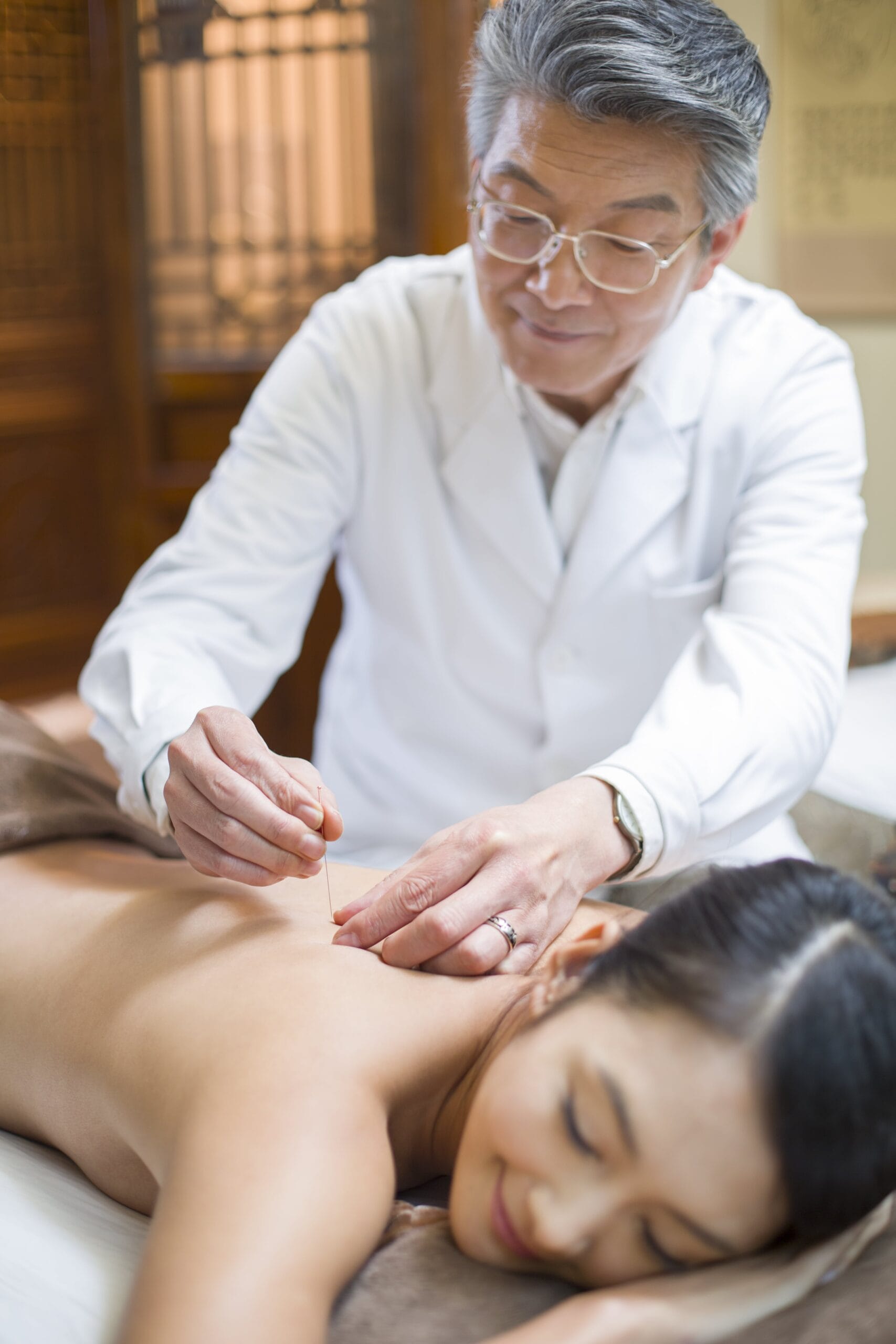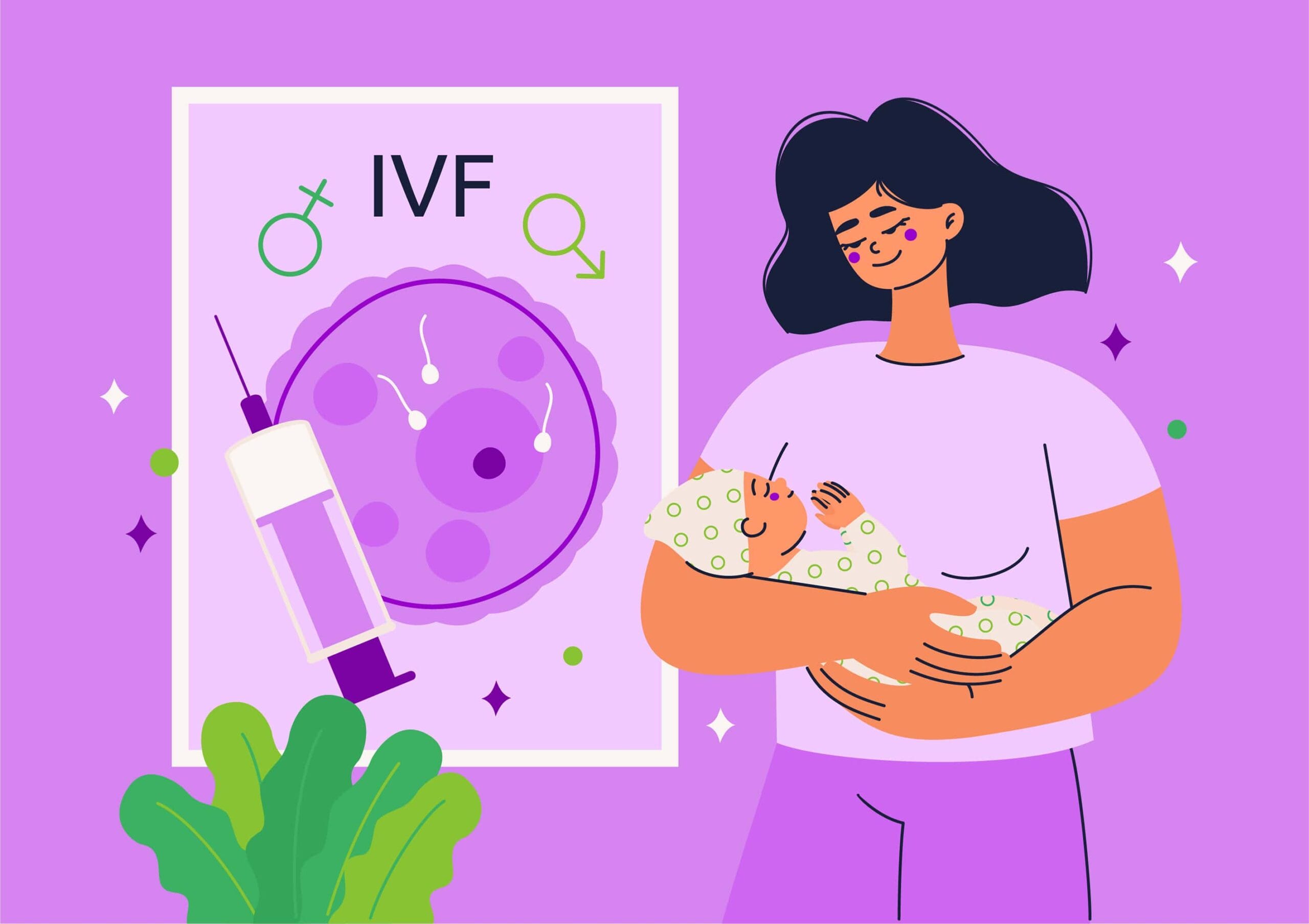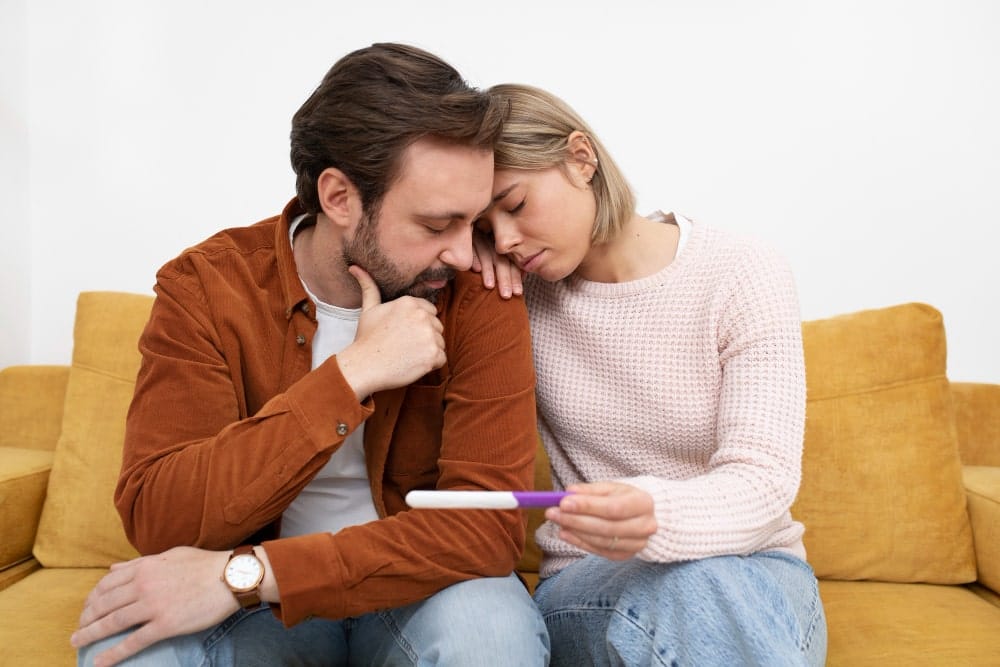Conceiving can be an exciting yet stressful journey, especially if it takes longer than expected. For many, it’s more than just tracking ovulation and fertility treatments. Complementary therapies like acupuncture are becoming more and more popular as hopeful parents look for extra support. This ancient Chinese medicine technique involves inserting fine needles in specific points and has been hailed for improving reproductive health and fertility. But how does it work and can it really help you on your conception journey? Let’s find out the benefits of acupuncture for pregnancy and fertility.

What Is Acupuncture?
Acupuncture is a type of Chinese medicine that’s been around for ages. It involves carefully placing thin needles into certain recognized points on your body known as acupoints. These acupoints are believed to stimulate the body’s energy flow or “qi” (pronounced “chee”) and promote overall health. When it comes to acupuncture for fertility the process is to enhance reproductive function by improving blood flow, regulating hormones, and reducing stress.
The Link Between Stress and Fertility
One of the biggest benefits of acupuncture is that it reduces stress. Stress, especially chronic stress, can impact your chances of getting pregnant by disrupting the hormonal balance needed for ovulation and implantation. Acupuncture calms the nervous system and triggers the release of endorphins – your body’s natural happy chemicals. By creating a relaxed state, acupuncture can support your fertility journey indirectly.
How Acupuncture Supports Hormonal Balance
Hormonal imbalances are a common cause of fertility issues. Whether it’s irregular ovulation, PCOS, or thyroid dysfunction, imbalanced hormones can prevent conception. Acupuncture targets the abdomen and reproductive organs to regulate hormones like estrogen and progesterone. This balance is necessary for ovarian function and creating an environment for conception.
Improving Blood Flow to Reproductive Organs
Another key benefit of acupuncture is its potential to improve blood flow to the reproductive organs. Enhanced circulation to the uterus and ovaries ensures that they receive the necessary nutrients and oxygen to function properly. This increase in blood flow can also contribute to a thicker uterine lining, which is crucial for successful implantation. Additionally, improved blood flow can support follicle development, increasing the chances of a healthy egg release during ovulation.
Another benefit of acupuncture is its ability to improve blood flow to the reproductive organs. Increased blood flow to the uterus and ovaries means they get the essential nutrients and oxygen they need to function properly. This increased blood flow also helps to thicken the uterine lining which is crucial for implantation. Plus increased blood flow can support follicle development and increase the chances of a healthy egg release during ovulation.
Acupuncture and Sperm Quality
Fertility is not just about the health of the woman; male fertility plays an equally important role. Acupuncture can also be beneficial for men by improving sperm count, motility, and morphology. Poor sperm quality is a common issue, but acupuncture’s ability to increase circulation, reduce inflammation, and regulate hormones can help improve sperm health. Couples undergoing fertility treatments, such as in vitro fertilization (IVF), may find acupuncture helpful for enhancing both partners’ reproductive function.
When Should You Start Acupuncture for Fertility?
Acupuncture works best when approached as a long-term solution. It’s not a quick fix but rather a process-oriented therapy, similar to physical therapy. Acupuncturists typically recommend starting treatments three to four months before trying to conceive or undergoing assisted reproductive technologies (ART) like IVF or IUI (intrauterine insemination). This allows time for the body to adjust, respond to treatments, and create the ideal conditions for conception.
Acupuncture in Conjunction with Fertility Treatments
If you’re undergoing fertility treatments like IVF or IUI, acupuncture can complement these therapies. Acupuncture is often used before and after embryo transfer to increase blood flow to the uterus and reduce uterine contractions. While some studies show mixed results, many fertility clinics support acupuncture as a complementary treatment due to its ability to reduce stress, a critical factor in successful fertility outcomes.

The Role of Acupuncture in Regulating Menstrual Cycles
A regular menstrual cycle is a key indicator of reproductive health, and acupuncture can play a role in regulating cycles. Whether you’re experiencing irregular periods, painful menstruation, or conditions like endometriosis, acupuncture can help. By targeting the endocrine system, acupuncture works to balance hormones that regulate your cycle, making it more predictable and improving the chances of successful ovulation.
Is Acupuncture Safe?
Common Acupuncture Points for Fertility
Acupuncture is generally considered safe when performed by a licensed and experienced practitioner, especially one who specializes in fertility issues. The needles used in acupuncture are sterile and extremely thin, minimizing the risk of infection or discomfort. However, it’s important to note that certain acupuncture points, especially around the lower abdomen, should be avoided after insemination or embryo transfer to prevent miscarriage. Always consult your healthcare provider before starting acupuncture, especially if you’re undergoing fertility treatments.
The acupuncturist will assess your overall health and fertility concerns before determining which points to target. Common acupuncture points for fertility include:
- CV4 (Conception Vessel 4): Located below the belly button, this point is thought to boost reproductive energy and improve fertility.
- SP6 (Spleen 6): Situated on the lower leg, this point is used to regulate menstruation and strengthen reproductive health.
- ST29 (Stomach 29): Found in the lower abdomen, this point helps improve blood flow to the uterus.
What to Expect During Acupuncture Sessions
During an acupuncture session, you’ll typically lie down in a comfortable position while the acupuncturist inserts needles into specific points. You may feel a slight prick or tingling sensation, but the process is generally painless. Sessions usually last between 30 and 60 minutes, and many people report feeling relaxed or even sleepy during the treatment. Acupuncturists often recommend weekly sessions, but the frequency can vary depending on your individual needs.
Can Acupuncture Alone Help with Infertility?
While acupuncture can support reproductive health, it’s not a cure for infertility, especially in cases involving blocked fallopian tubes or severe male infertility. However, when combined with medical treatments, acupuncture can improve the chances of conception by addressing underlying issues such as poor blood flow, hormonal imbalances, or high-stress levels. Acupuncture should be seen as one piece of a larger fertility plan that includes medical advice, lifestyle changes, and possibly fertility treatments.
When to See an Acupuncturist for Fertility Support
Many fertility experts recommend seeing an acupuncturist if you’ve been trying to conceive for six months to a year without success. However, acupuncture can be beneficial even before that, especially if you’re looking to optimize your reproductive health before trying to conceive. Acupuncture is also recommended for individuals experiencing irregular menstrual cycles, PCOS, or unexplained infertility.
Final Thoughts
Acupuncture can be a valuable tool for those on their conception journey. While the science is still evolving, many individuals have found it helpful for reducing stress, improving reproductive health, and complementing fertility treatments. Whether you’re just starting to try or are deep into the process of fertility treatments, acupuncture may provide the support you need to optimize your chances of conceiving.







